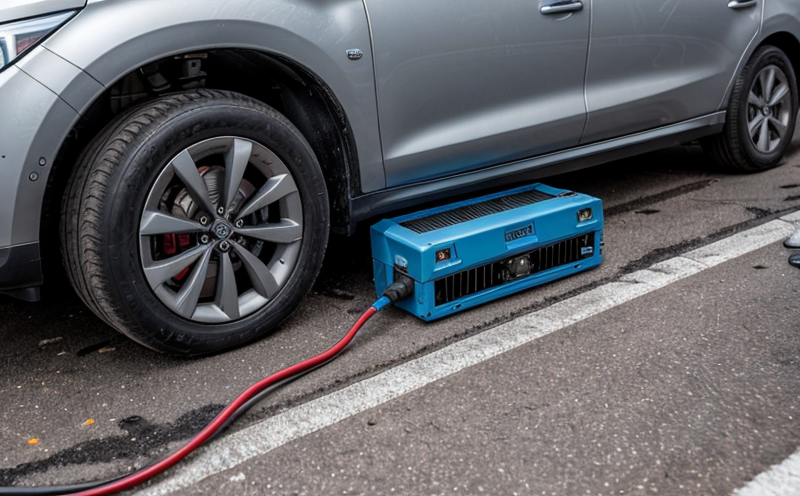Overcharge testing to simulate worst-case scenarios for battery systems
Unlocking Battery Safety Why Overcharge Testing to Simulate Worst-Case Scenarios is a Game-Changer for Businesses
As the world continues to transition towards renewable energy sources and electric vehicles, battery systems have become an integral part of our daily lives. From powering smartphones to propelling electric cars, batteries are the backbone of modern technology. However, with great power comes great responsibility ensuring that battery systems operate safely and efficiently is crucial for businesses to avoid costly downtime, product failures, and regulatory non-compliance.
This is where Overcharge testing to simulate worst-case scenarios for battery systems comes in. Eurolabs laboratory service provides a critical solution for businesses to test their battery systems under extreme conditions, identifying potential risks and vulnerabilities before they become major issues. In this article, well delve into the world of Overcharge testing, exploring its benefits, advantages, and why its an essential tool for any business relying on battery-powered products.
The Importance of Overcharge Testing
Battery systems are subject to various stresses and strains during their lifespan. Overcharging, in particular, can lead to a range of problems, including
Thermal runaway
Capacity loss
Reduced cycle life
Increased risk of fire or explosion
These issues can have far-reaching consequences for businesses, from costly product recalls to damage to reputation and brand equity. By simulating worst-case scenarios through Overcharge testing, Eurolabs laboratory service helps identify potential weaknesses and allows businesses to take proactive steps to mitigate risks.
Advantages of Using Overcharge Testing to Simulate Worst-Case Scenarios
The benefits of using Overcharge testing are numerous and compelling
Identify Potential Risks By simulating worst-case scenarios, Eurolabs laboratory service enables businesses to identify potential weaknesses in their battery systems, allowing them to take corrective action before they become major issues.
Ensure Regulatory Compliance Governments worldwide have implemented strict regulations governing the safety of battery-powered products. Overcharge testing helps ensure that businesses comply with these regulations, avoiding costly fines and reputational damage.
Reduce Downtime and Costs By identifying potential risks and weaknesses, businesses can take proactive steps to prevent downtime and reduce costs associated with product failures.
Enhance Product Reliability Regular Overcharge testing helps businesses identify areas for improvement, leading to more reliable products that meet customer expectations.
Key Benefits of Eurolabs Overcharge Testing Services
Comprehensive Analysis Our laboratory service provides a detailed analysis of battery systems under extreme conditions, identifying potential risks and vulnerabilities.
Customized Solutions We work closely with businesses to develop customized testing protocols tailored to their specific needs and requirements.
Expert Guidance Our team of experienced engineers and technicians provide expert guidance on interpreting test results and implementing corrective actions.
What is Overcharge Testing?
Overcharge testing involves simulating worst-case scenarios for battery systems, including
Rapid charging
Deep discharging
Thermal stress
Mechanical stress
Our laboratory service uses specialized equipment to replicate these conditions, subjecting battery systems to extreme temperatures, currents, and pressures. This enables us to identify potential weaknesses and vulnerabilities that may not be apparent under normal operating conditions.
Frequently Asked Questions (FAQs)
Q What is the purpose of Overcharge testing?
A The primary goal of Overcharge testing is to simulate worst-case scenarios for battery systems, identifying potential risks and vulnerabilities that may lead to product failures or regulatory non-compliance.
Q Why do I need to conduct Overcharge testing on my battery system?
A By simulating extreme conditions, you can identify areas for improvement, ensuring your products meet customer expectations and comply with regulations.
Q What types of battery systems can be tested using Eurolabs laboratory service?
A Our service is suitable for a wide range of battery systems, including lead-acid, lithium-ion, nickel-cadmium, and nickel-metal hydride batteries used in various applications, from consumer electronics to electric vehicles.
Q How long does the testing process take?
A The duration of testing varies depending on the type and complexity of the battery system. Our team works closely with clients to develop customized testing protocols that meet their specific needs and requirements.
Conclusion
In conclusion, Overcharge testing to simulate worst-case scenarios for battery systems is an essential tool for businesses relying on battery-powered products. By identifying potential risks and vulnerabilities, Eurolabs laboratory service helps ensure regulatory compliance, reduces downtime and costs associated with product failures, and enhances product reliability. With our comprehensive analysis, customized solutions, and expert guidance, we empower businesses to take proactive steps towards creating safer, more efficient, and reliable battery systems.
Dont wait until its too late schedule an Overcharge testing session with Eurolab today and unlock the full potential of your battery-powered products!




